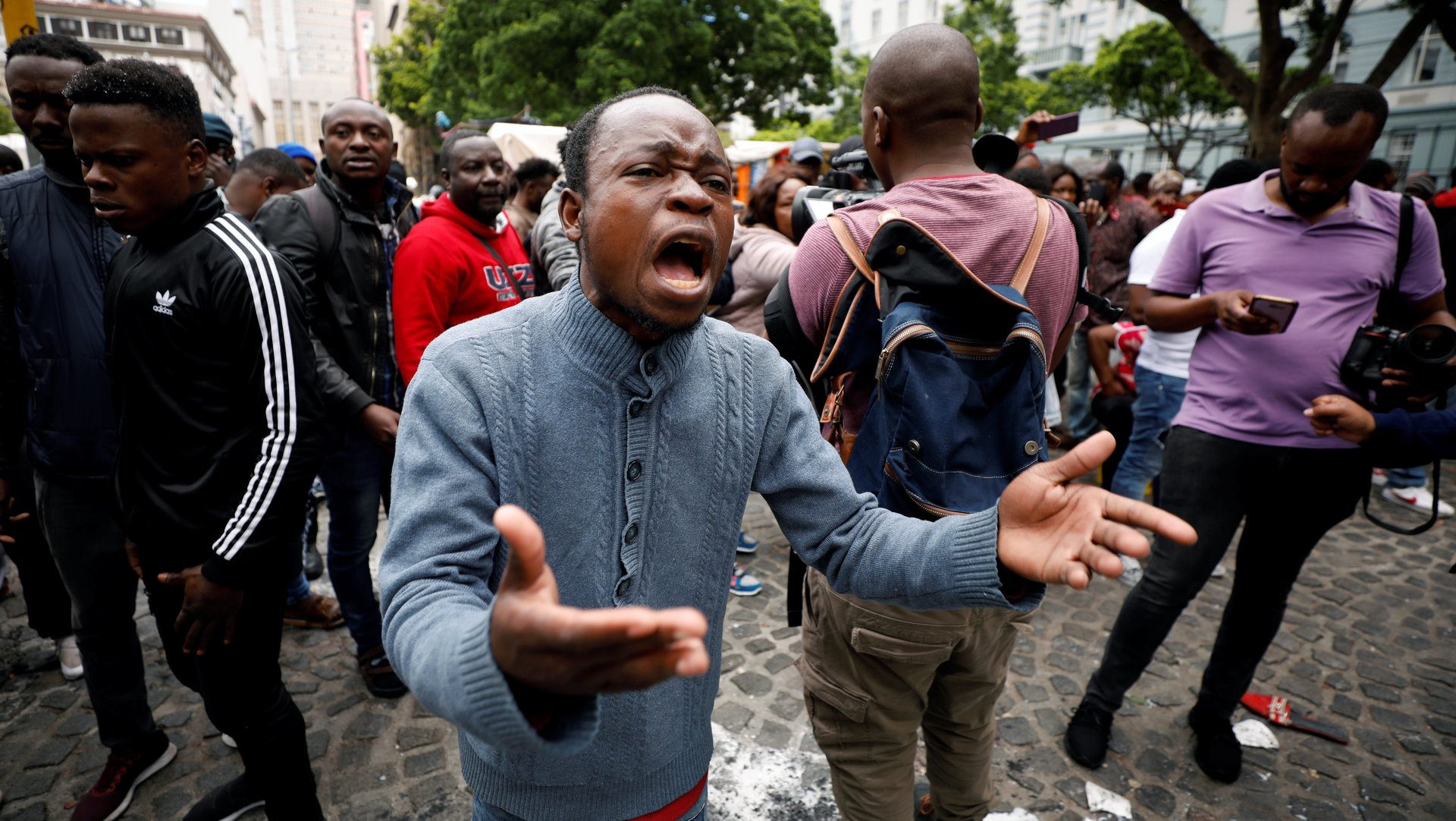How social media is being exploited for South Africa’s long-standing xenophobia problem
Anti-migrant sentiments reared its head again this week in South Africa. On Sept. 23, hundreds of protesters under the banner of #PutSouthAfricansFirst movement marched along the streets of the capital Pretoria to the Nigerian High Commission, where they handed over a memorandum.


Anti-migrant sentiments reared its head again this week in South Africa. On Sept. 23, hundreds of protesters under the banner of #PutSouthAfricansFirst movement marched along the streets of the capital Pretoria to the Nigerian High Commission, where they handed over a memorandum.
But what was different this time from previous anti-migrant protests was the protest had been almost exclusively organized on social media rather than a spontaneous eruption in the townships, usually in response to a rumored or real event involving a local migrant.
It shows how social media in South Africa is now being more explicitly manipulated to stir already existing bitter sentiments and long-held prejudices particularly among poor and working class Black South Africans against migrants and refugees from other African countries, a phenomenon sometimes called “Afrophobia.”
As in the previous protests, the demonstrators were complaining about irregular migrants whom they claim deprive locals of jobs. They also alleged migrants, citing specifically those from Nigeria and Zimbabwe, are criminals perpetuating human trafficking, drug peddling, and farm murders. The protesters said they want all irregular immigrants to be deported, while also advocating stricter immigration policies.
These #ForeignersMustGo protests have yet to turn violent or even deadly like those in the recent past, but there are indications it could result to heavy casualties as South Africa has a long history of fatal violence against immigrants but another demonstration is expected on Sept. 28.
An investigation by the Atlantic Council’s Digital Forensic Research Lab (DFRLab) found xenophobic campaigns run on Twitter prompting a new wave of anti-foreigner protests, were intentional and coordinated. It identified Sifiso Jeffrey Gwala, a former South African National Defense Force lance corporal being behind the Twitter account previously known as @uLerato_pillay which encouraged the protests. Another DFRLab investigation had earlier found the account to be connected to South African First; a nationalist political party which advocates tightening of South African borders and the eviction of foreign nationals.
The unmasked Twitter account holder and other Afrophobic South Africans have been using the platform since last year to incite their thousands of followers along xenophobic lines. On Sept. 23, #PutSouthAfricansFirst #23SeptemberCleanSA and #ForeignersMustGo were the must trending hashtags in South Africa, with thousands of tweets and retweets.
South Africa has had recent experience in the use of the internet to manipulate public opinion around race, ethnicity, and origin. Back in 2016, in a bid to distract public attention to their “state capture,” the Gupta brothers hired British PR giant Bell Pottinger to inflame tensions around race relations by driving the narrative of “white capital monopoly”.
Cognizant of the power of the media to spread disinformation aimed at instigating hatred and inciting violence, South Africa’s leading opposition party, Democratic Alliance (DA), is considering pushing for such acts to be considered as a “explicit criminal act” with “dedicated digital investigators” to enable it.
Samkelo Mokhine, executive director of Freedom of Expression Institute, told Quartz Africa that the internet is a double-edged sword in South Africa. “The platforms are important because of the ease they offer for mobilization. But for now, the government’s hands are tied because there is lack of clarity on the definition of hate speech. Once that is cleared, the government can take steps to punish perpetrators,” he said.
Sign up to the Quartz Africa Weekly Brief here for news and analysis on African business, tech, and innovation in your inbox